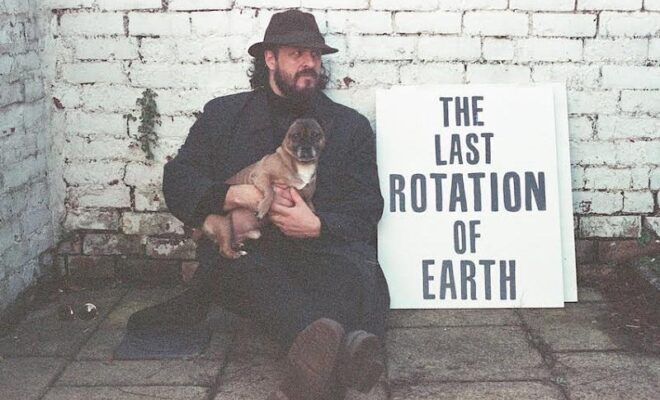‘Must read’ book: Birnam Wood – Eleanor Catton

Can it really be ten years since Eleanor Catton appeared seemingly out of nowhere – well, New Zealand, at least – to become the youngest-ever winner of the Booker Prize with The Luminaries, which, at 832 pages, was also the longest? The book was dazzling, a clockwork marvel, a pastiche of the Victorian sensation novel set in the gold fields of 19th-century New Zealand involving multiple narrators and elaborately patterned after the astrological configuration of the time
It would be fair to assume that Catton’s spent the last decade concocting something even more gargantuan and byzantine. But no, her new novel Birnam Wood employs the thriller form to magnificent effect and demonstrates that Catton is a master at adapting literary forms to her own sly purposes. The novel is tightly plotted and enriched with tartly satirical depictions of an assortment of elements that outsiders casually associate with New Zealand: natural splendour, earnestly decent white people carefully borrowing ideas from Māori culture, environmental threats, and creepy American tech billionaires setting up boltholes in which to ride out the apocalypse they’re doing nothing to prevent. The title comes from the name of a guerrilla gardening collective that reclaims unused land to grow food, which in turn is named after the Scottish forest that figures in the witches’ prophecy to Macbeth that he shall go unvanquished until its trees come to Dunsinane
Set on New Zealand’s rugged South Island before the pandemic, the novel follows Birnam Wood as they plant crops and flowers along highway medians and abandoned urban lots, sometimes with permission, sometimes without. While they might think of themselves as fearless revolutionaries, their antics rarely extend much beyond stealing a hoe from a wealthy neighbour’s garden shed. Mira Bunting, their self-possessed, 29-year-old leader, pushes a rigid agenda, aided by her confidante Shelley, who sulks in the shadow of her friend
As the novel opens, Mira spies a potentially rich new target. A landslide has buried a stretch of highway, almost completely cutting off the picture-postcard town of Thorndike and cancelling development of a 375-acre plot abutting a national park. The land’s boomer owner, Owen Darvish, deeply annoys her because of his prominent involvement with conservation projects. It irks her that “anyone of this man’s age, race, gender, wealth, and associated privilege should have used his power – allegedly – for good, should have built his business – allegedly – up from the ground, from nothing, and should possess -allegedly – the very kind of rural authenticity that she herself most envied and pursued. “What better place for Mira’s merry band of subversive farmers to till the soil in relative secrecy! If they get arrested, even better: The publicity will amplify their cause
The only problem is that this land has already caught the attention of Robert Lemoine, an American billionaire. He plans to construct a luxurious bunker here where he can, when the moment arrives, wait out the apocalypse. In her characteristically athletic style, which flexes from fury to parody, Catton describes Lemoine as “a far-sighted, short-selling, risk-embracing kleptocrat, an incarnation of unapologetic zero-sum self-interest, a radical misfit, a ‘builder’ in the Randian sense, a genius, a tyrant, an obsessive, a prophet, a status-symbol survivalist hedging his bets against any number of potential global catastrophes that he himself was doing absolutely nothing to prevent, and might even be taking active measures to encourage if there was a profit to be made, or an advantage to be gained, in the pursuit”
The moment Lemoine spots Mira snooping around this land, they both begin trying to deceive each other. Till Birnam wood remove to Dunsinane / I cannot taint with fear. The author casts Lemoine as the egomaniacal, self-deluded Thane of Cawdor and Mira as Lady Macbeth, she of questionable ethics and Out-damned-spot fame. Lemoine is the archetype of a sexy, sinister plutocrat. His swagger seduces Mira. In turn he’s captivated by her assertiveness and guile: he offers her group fields and tools to farm and $100,000 dollars with which they can attain comfortable self-sufficiency. This strange-bedfellows partnership raises red flags for Tony, Mira’s ex-boyfriend, who’s just returned to New Zealand after a stint abroad. An aspiring journalist, Tony also stakes out the Darvish acreage, even slipping into Kurowai park, where he discovers a phalanx of drones and a creepy testing site. Something’s amiss in the bush
 Deep beneath this rich soil – and layers of deceit – lie a trillion dollars worth of rare-earth elements. Just as the 19th century revolved around fantasies of buried gold, the 21st is obsessed with these valuable minerals. With fantastical names like lanthanides, scandium and yttrium, rare-earth elements play a crucial role in renewable-energy technology, which may be our best hope for avoiding catastrophic global warming. Two of the many essential questions Birnam Wood raises are who will control those minerals, and how will they be extracted without inflicting even more environmental damage?
Deep beneath this rich soil – and layers of deceit – lie a trillion dollars worth of rare-earth elements. Just as the 19th century revolved around fantasies of buried gold, the 21st is obsessed with these valuable minerals. With fantastical names like lanthanides, scandium and yttrium, rare-earth elements play a crucial role in renewable-energy technology, which may be our best hope for avoiding catastrophic global warming. Two of the many essential questions Birnam Wood raises are who will control those minerals, and how will they be extracted without inflicting even more environmental damage?
The billionaire and the gardeners would seem to be moral opposites, but Catton writes with a satiric edge that leaves no survivors. In fact, she’s most incisive when it comes to the members of the Birnam Wood co-op. As a narrator, she demonstrates a kind of vicious sympathy, hitching a ride along with their thoughts while poking a stick in their spokes. Mira and her friends are intimately drawn portraits of liberal narcissism and naivete. “Like all self-mythologising rebels,” Catton writes, “Mira preferred enemies to rivals, and often turned her rivals into enemies, the better to disdain them as secret agents of the status quo.” Along with vegetables, these privileged young people find plenty of time to sow their own anxieties and reap a bumper crop of conflicts within their pious group of recyclers and scavengers
Birnam Wood continually dramatises political, technical and environmental crises with delicious wit. And once an accidental death upsets everyone’s competing machinations, readers are unlikely to notice anything except the story’s acceleration toward ever more toil and trouble. With terrifying intensity, Catton propels these characters to a finale that prefigures the very apocalypse they’re all trying to forestall. It’s a wry indictment of all the poor players who strut and fret their hours upon this stage and then are heard no more
Eleanor Catton’s Birnam Wood is one of this year’s most sophisticated, stylish, and searching works, a full-on triumph from a once-in-a-generation talent
Leave a reply
You must be logged in to post a comment.







